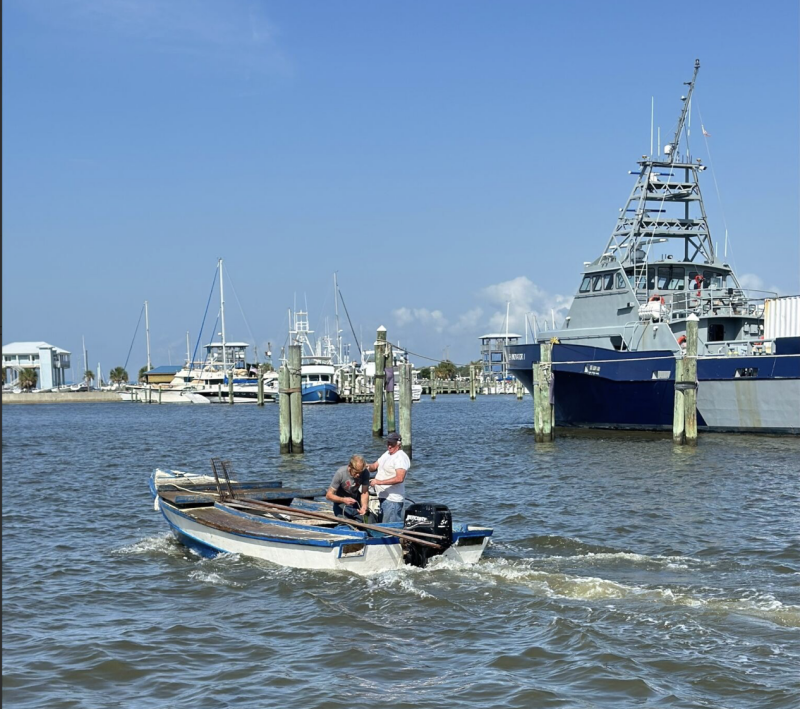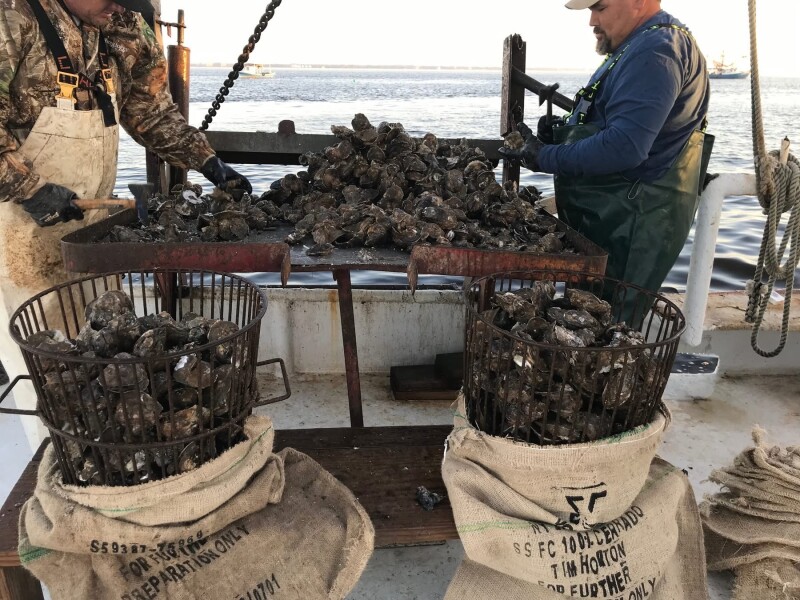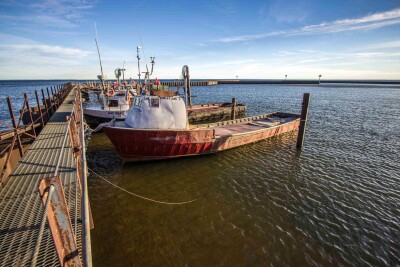Mississippi oyster harvesters are suing the state government to stop the private leasing of the public oyster reefs they depend on for their livelihoods.
“We’re looking for a preliminary injunction to keep the reefs open to the public and give us some time to harvest what’s out there,” says Ryan Bradley, executive director of Mississippi Coastal Fisheries United (MICFU). “We’re finally seeing our reefs come back, all we have to do is maintain access. We’re waiting for a court date for the hearing, and the state has agreed not to grant any leases—for now.”
Devastated first by Hurricane Katrina in 2005, then the BP oil spill in 2010, the Mississippi oyster beds succumbed at last to a man-made disaster. In 2019, Major General Richard Kaiser of the U.S. Army Corp of Engineers opened the Bonnet Carre spillway for a record 123 days, which released an estimated six trillion gallons of fresh water into Lake Pontchartrain and Mississippi Sound, killing oysters almost all the way to the Alabama state line.
Bradley reports that he and other oystermen started harvesting oysters again in November 2024 after six years of rebuilding efforts supported by state, federal, and BP funding. “We started with a limit of 15 sacks for the dredge boats and 10 for the tongers, but there were so many oysters they increased that to 30 for the dredge boats and 15 for the tongers.”
It’s been a long road back for the wild harvesters, but now they face a new problem. Senate bill 2648, which was sponsored by State Sen. Mike Thompson, chairman of Ports and Marine Resources, and passed in 2024, would privatize 80 percent of Mississippi’s oyster reefs and lease them to private enterprises.
Proponents of the legislation contend that private companies can do a better job of restoring the reefs than the state can. Opponents argue that it will put fishermen who have worked the reefs for generations out of business.
Bradley notes that he and other oystermen who harvest on public reefs have tried to talk to Senator Thompson, who represents several coastal communities, but to no avail. “He wouldn’t budge,” says Bradley. “It’s disheartening. There’s millions of dollars on the ground out there for our guys and the state wants to lease it out for a paltry three dollars an acre per.”
Bradley and other long-time oyster harvesters call Thompson’s measure unethical, immoral, and unconstitutional. “The state has put millions of taxpayer dollars into restoring these reefs, and we’re arguing that it is unlawful to then turn that investment over to private companies. The state says they can’t keep funding restoration,” Bradley says. “They don’t have to. Mother Nature will take over. These reefs are naturally occurring.”
Bradley notes that the investment requirements for putting down cultch and turning beds on leases put them out of reach for the average oyster harvester. “Our state wants people to believe that all this private investment is necessary to proliferate and cultivate oyster reefs,” he says.
“Fishermen contend that natural processes contribute to 95 percent of the growth and recruitment of oyster reefs. Good water quality is the primary driver of success on oyster reefs in our opinion. Not to mention, our wild oyster reefs here in Mississippi have been naturally occurring without man's intervention for thousands of years! These leases are for the wealthy, not for your traditional harvester.”
Bradley notes that the MICFU is looking to see this law struck down. “But we know it won’t end there, so we have to start thinking about the next election.”
At $50 a sack, oyster tongers can gross $750 a day with a minimal capital investment—when they can work. “Water quality is always an issue,” says Bradley. “But we’re confident that if we can maintain access and steer clear of any more disasters, we have a bright future. I hope that will start to bring more young people into this business.”








